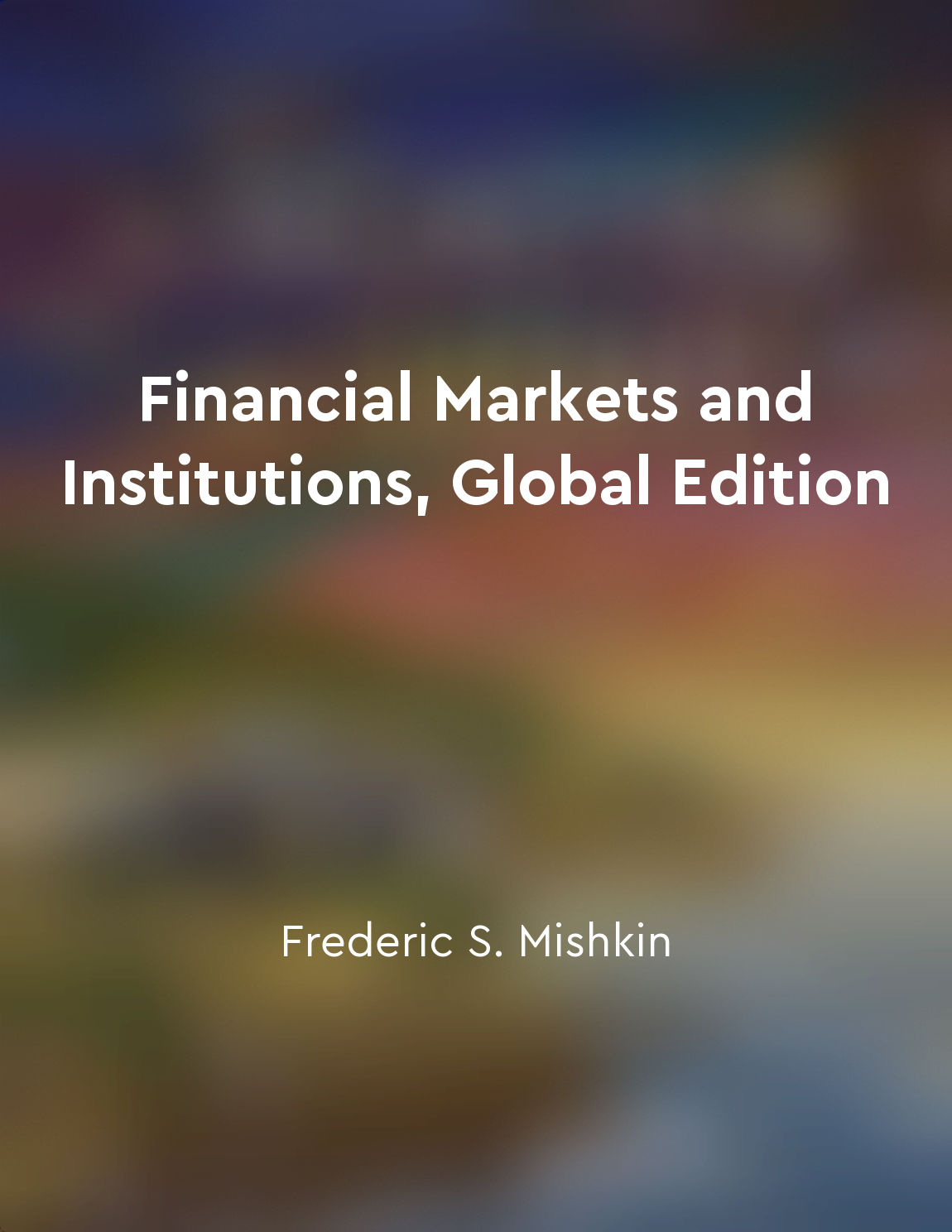Monetary policy controls money supply from "summary" of EBOOK: Macroeconomics by Rudiger Dornbusch,Stanley Fischer,Richard Startz
Monetary policy plays a crucial role in the economy by influencing the money supply. Central banks are responsible for implementing monetary policy, using various tools to control the amount of money circulating in the economy. By adjusting interest rates, reserve requirements, and open market operations, central banks can influence the money supply and ultimately impact economic activity. When central banks lower interest rates, borrowing becomes cheaper, leading to increased spending and investment. This expansionary monetary policy can stimulate economic growth and boost employment. On the other hand, raising interest rates can have the opposite effect by discouraging borrowing and spending. This restrictive monetary policy can help control inflation and prevent the economy from overheating. Another tool used by central banks to control the money supply is adjusting reserve requirements for banks. By changing the amount of reserves that banks are required to hold, central banks can influence the amount of money that banks can lend out. This, in turn, affects the overall money supply in the economy. Open market operations involve the buying and selling of government securities by central banks. When central banks purchase government securities, they inject money into the economy, increasing the money supply. Conversely, selling government securities reduces the money supply. By using open market operations, central banks can directly impact the amount of money available in the economy.- Monetary policy is a powerful tool that central banks use to control the money supply and influence economic activity. By adjusting interest rates, reserve requirements, and engaging in open market operations, central banks can effectively manage the money circulating in the economy to achieve their policy objectives.
Similar Posts
Ideological beliefs hinder progress
In a world where ideological beliefs reign supreme, progress becomes a distant dream. The rigid adherence to partisan dogma bli...
Solow model explains longrun growth
The Solow model is a key element in understanding the long-run growth of an economy. It provides a framework that helps us anal...
Bitcoin's role as a digital currency is evolving, with new applications and use cases emerging
Bitcoin's role as a digital currency has been gradually expanding beyond its initial purpose of facilitating peer-to-peer trans...

The International Monetary Fund provides financial assistance to countries in need
The International Monetary Fund plays a crucial role in the global financial system by offering financial assistance to countri...

The pursuit of affluence should not come at the expense of social wellbeing
The pursuit of affluence, as emphasized in the preceding chapters, is a central goal in modern industrial societies. Individual...

Bitcoin offers a superior monetary system
Bitcoin's superiority as a monetary system lies in its fundamental characteristics. One of the key advantages of Bitcoin is its...
Derivatives play a key role in managing financial risk
Derivatives are financial instruments whose value is derived from the value of some underlying asset or variable, such as a com...
Savings may not always lead to investment
The relationship between savings and investment is a fundamental concept in economics. It is often assumed that an increase in ...

Venture capitalists provide funding to startups with high growth potential
Venture capitalists play a crucial role in the financial market by providing funding to startups that have the potential for hi...

Free markets encourage entrepreneurship
The fundamental idea behind free markets is that individuals are free to make their own choices about what to produce, how to p...

